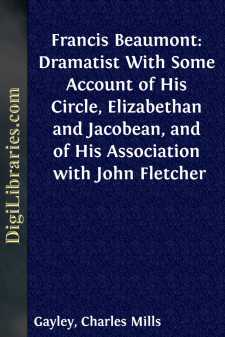Categories
- Antiques & Collectibles 13
- Architecture 36
- Art 48
- Bibles 22
- Biography & Autobiography 815
- Body, Mind & Spirit 144
- Business & Economics 28
- Children's Books 18
- Children's Fiction 14
- Computers 4
- Cooking 94
- Crafts & Hobbies 4
- Drama 346
- Education 58
- Family & Relationships 59
- Fiction 11834
- Games 19
- Gardening 17
- Health & Fitness 34
- History 1378
- House & Home 1
- Humor 147
- Juvenile Fiction 1873
- Juvenile Nonfiction 202
- Language Arts & Disciplines 89
- Law 16
- Literary Collections 686
- Literary Criticism 179
- Mathematics 13
- Medical 41
- Music 40
- Nature 179
- Non-Classifiable 1768
- Performing Arts 7
- Periodicals 1453
- Philosophy 65
- Photography 2
- Poetry 896
- Political Science 203
- Psychology 44
- Reference 154
- Religion 515
- Science 126
- Self-Help 85
- Social Science 83
- Sports & Recreation 34
- Study Aids 3
- Technology & Engineering 59
- Transportation 23
- Travel 463
- True Crime 29
Our website is made possible by displaying online advertisements to our visitors.
Please consider supporting us by disabling your ad blocker.
Francis Beaumont: Dramatist With Some Account of His Circle, Elizabethan and Jacobean, and of His Association with John Fletcher
Description:
Excerpt
CHAPTER I
THE CASTOR AND POLLUX OF ELIZABETHAN DRAMA
"Among those of our dramatists who either were contemporaries of Shakespeare or came after him, it would be impossible to name more than three to whom the predilection or the literary judgment of any period of our national life has attempted to assign an equal rank by his side. In the Argo of the Elizabethan drama—as it presents itself to the imagination of our own latter days—Shakespeare's is and must remain the commanding figure. Next to him sit the twin literary heroes, Beaumont and Fletcher, more or less vaguely supposed to be inseparable from one another in their works. The Herculean form of Jonson takes a somewhat disputed precedence among the other princes; the rest of these are, as a rule, but dimly distinguished." So, with just appreciation, our senior historian of the English drama, to-day, the scholarly Master of Peterhouse. Sir Adolphus Ward himself has, by availing of the inductive processes of the inventive and indefatigable Fleay and his successors in separative criticism, contributed not a little to a discrimination between the respective efforts of the "twin literary heroes" who sit next Jason; and who are "beyond dispute more attractive by the beauty of their creations than any and every one of Shakespeare's fellow-dramatists." But even he doubts whether "the most successful series of endeavours to distinguish Fletcher's hand from Beaumont's is likely to have the further result of enabling us to distinguish the mind of either from that of his friend." Just this endeavour to distinguish not only hand from hand, but mind from mind, is what I have had the temerity to attempt. And still not, by any means, a barefaced temerity, for my attempt at first was merely to fix anew the place of the joint-authors in the history of English comedy; and it has been but imperceptibly that the fascination of the younger of them, of Frank Beaumont, the personality of his mind as well as of his art, has so grown upon me as to compel me to set him before the world as he appears to me to be clearly visible.
In broad outline the figure of Beaumont has been, of course, manifest to the vision of poet-critics in the past. To none more palpably than to the latest of the melodious immortals of the Victorian strain. "If a distinction must be made," wrote Swinburne as early as 1875, "if a distinction must be made between the Dioscuri of English poetry, we must admit that Beaumont was the twin of heavenlier birth. Only as Pollux was on one side a demigod of diviner blood than Castor can it be said that on any side Beaumont was a poet of higher and purer genius than Fletcher; but so much must be allowed by all who have eyes and ears to discern in the fabric of their common work a distinction without a difference. Few things are stranger than the avowal of so great and exquisite a critic as Coleridge, that he could trace no faintest line of demarcation between the plays which we owe mainly to Beaumont and the plays which we owe solely to Fletcher....


